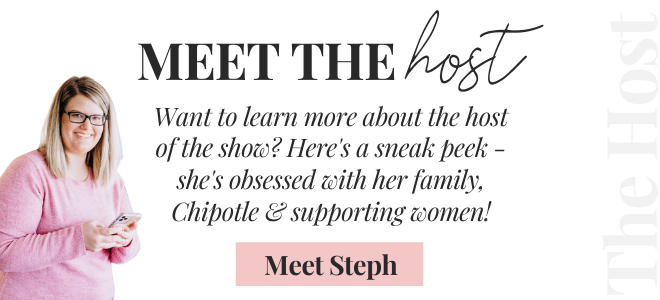WORKSHOP
Free
In this LIVE training, you'll learn the exact system to work less than 20 hours per week and make 6+ figures in one year with 1 team member & no ads.
How This Single Mom Grew Her Business From the Kitchen Table into a Multi-Million Dollar Empire with Jan Cavelle
February 14, 2022
So, take us on your journey of how you got to this point in your life, from your kitchen table as a single mom to your business now! [1:04]
Jan: I found myself a single mom through a messy divorce and split with my ex-husband. It was a very acrimonious divorce and I found myself broke, on top of raising my two children.
They were only about four and eight at the time and I struggled to keep a roof over our heads, wondering if I could keep us fed, or where our next meal would come from. It wasn’t just me distressed and worried, but my children as well. I also didn’t want to leave them to go to work full time, especially at that time.
That’s really the moment your kids need you the most and you’re faced with having to go to work to support them. It’s a tough choice to make.At the time, I thought my only option was to start my own business. I had the experience in being self-employed and starting very micro businesses, which was more of a hobby than a dream.
When I did have those traditional jobs, I was in retail and sales, so I had that experience to back me up to a degree.So logically, since I had that experience, I figured I could buy and sell.
It was pre-internet days so my office set up was very limited. I couldn’t search the internet, so on Fridays, I would buy trade directories for the Yellow Pages, one area at a time.It would give me a list of several hundred companies, some of which were relevant and who would in turn possibly buy from me.
It was very tough and the juggle of what your children needed and what you needed to provide, such as that roof and food, was the toughest part.
“The juggle of what your children needed and what you needed to provide, such as that roof and food, was the toughest part.”
So, what happened after you began your business? What were those next years like? [9:22]
Jan: It took a while to juggle childcare and run a small business. I couldn’t do very much at the beginning. In all honesty, I didn’t know much about selling. I eventually got the hang of it and improved through the necessity of what I was doing, for my children’s sake and just surviving.
Thankfully, I was a fairly quick learner about what worked and what didn’t. There wasn’t a huge amount I could do with the business while my children were so young.When my business slowly began to evolve, I soon had a few people working with me.
It was a very relaxed environment, and we all juggled the odds, work, and even comforted each other. It wasn’t financially stable, but it was okay. It was a good quality of life and I was there. That probably lasted six years.Before long, I soon had two kids just entering the teens at at the time, it was still a very small business and doing okay but still, very much a micro business.
But then, my main supplier decided overnight to retire. It was total panic.
So, can you explain exactly what you were doing in this business? [11:34]
Jan: I was buying and selling furniture for interior designers. So, I was essentially a very small furniture company. You can see how the main supplier retiring caused the panic.
I was unprepared but eventually we reached a deal where I took over his tiny staff and kept going. I ran everything. We were partners of a sort, one business being his and one being mine but both being ran by me.
It was just so impractical and then the idea hit me.Wouldn’t it be the smart move to put all of this into one building? Combine the two businesses, in a sense?
And that’s what we did but that also involved a lot of expense I didn’t expect. That was a major factor and I soon realized I had to grow. The business eventually took off until I soon had two factories and 40+ staff to manage.
Over the years that you were running this business, is there one thing that you can pinpoint of doing wrong or something that you wished you wouldn’t have done? [14:09]
Jan: Yeah, it is difficult! I think because I was very ignorant in the beginning.I was always going at it without a very clear vision of where I was going. I vaguely assumed that my children might have liked to work there as well.
And it was only after, as they got older, did I soon realize that the business was the wrong thing for them. They had to make their own lives, their own decisions in life.
“It’s really important to have a clear vision.”
I wanted a family business, but I had to realize that it wouldn’t be because there was no family that wanted to be involved, which means you lose your way badly.It is very important to have a clear vision.
I’m not talking about a vision statement, mission statement, and all that. I’m talking about the vision of what you want to get out of where you want to go and a beat plan of what you’re going to do.
If life doesn’t turn out like that or the way you planned, then it’s okay. I was a single mom in the first place.
I should have known better. Life doesn’t turn out the way you always plan for it too.
“If life doesn’t turn out the way you planned, it’s okay.”
So, are you still working in that business now? What happened to it? [15:52]
Jan: No. I ran into a brick wall, so to speak. I had several offers to sell but I kept thinking, and this this is probably another tip that I had wished I had known.
There was plenty of time for a decision on that.We don’t imagine that we’re going to part with our businesses. It’s a small business but it’s mine. I think we rarely look at making our business a sellable commodity.
When I finally started to look at selling, I realized I was up against very sharp people and I felt scared by it all. I kept pulling out of deals to sell, and eventually I just got to the point of no return. I thought “I don’t care anymore. I don’t care about money any longer.”
I knew one of our competitors wanted to buy the brand, so I sold it to them and walked away. I shut down the manufacturing side of the business and didn’t care anymore because there was more to life than what I was doing or working for.
When it gets to the point that after loving the business for over 20 years or so, and then all of a sudden, you would rather shoot yourself in the foot than go to work, then it means it’s gone too far.
Did you have it set up where you had a management team overseeing the majority of the tasks and day-to-day so you weren’t as involved? [19:09]
Jan: I did have a management team from the start. I relied on the people that I took over from the previous deal very heavily. They were great craftsman and it soon became quite obvious to me to put them in charge.
It’s very difficult as a business owner when you have people who have been with you for ten years or more and you put others in charge. You tend to feel disloyal.
It was a difficult challenge and I tried it all sorts of ways and brought in outside management and field brigade. Even with all of that said, I’ve never had a real strong management team.
I got close but never a real strong one. If I had a strong management team, it would have been entirely different.
So where are things now? What have you been doing since you’ve sold that? [24:07]
Jan: Well, I’ve been indulging myself really. Towards the end of those years, I’ve become obsessed with finding out what I could have done better.
I went on a lot of different courses and talked to a lot of interesting people. I also started writing for a business magazine.
I finally managed to get some of my free time back.I love what I want to do now, which is write books and articles that focus on business and entrepreneurship.
Can you give feedback or guidance to other single moms who were in your position, maybe they are in a nine to five job and they want to leave or they’re thinking of starting their own business? Maybe even running their own business right now. Do you have any feedback or tips or advice that you could share with them? [25:36]
Jan: I think the first important thing is you will be a good mother. You will learn to juggle, and you will learn that kids are far more adaptable than you are.
Actually, I think the children come to accept that this is “Mom’s working time and you know this is a crisis. You leave her alone and then she’s going take it for park afterward.”
I actually think in some ways the children benefit from it. I notice that when I interview successful entrepreneurs, which I do a lot, many of them come from divorced families or single parents.
Children have upheaval in their life, in their childhood, and they will be okay.
“You will learn to juggle and you will learn that kids are far more adaptable than you are.”
CONNECT WITH JAN CAVELLE
RESOURCES MENTIONED



